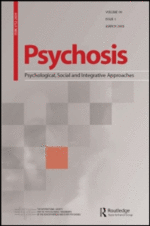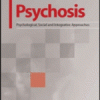Voices in the dark: Mosaic Science Podcast
Taken from the Mosaic Science Podcast podcast site: https://mosaicscience.com/story/hearing-voices
This documentary is also available on the Mosaic podcast through iTunes, RSS, SoundCloud and wherever good podcasts are found.
We all have an inner voice. But for some, hearing voices can be much more distinct and unusual.
Adam has a voice with a unique name and identity. Jacqui hears hundreds of different voices. Dolly’s voices led her to believe she was Jesus. The voices John experienced drove him to the edge.
Voice hearing is often understood to be a symptom of mental illness, but many voice hearers refute this diagnosis, believing the voices they hear are based on significant events that have shaped their lives.
Through their stories we explore what it means to hear voices and discover how the phenomenon is being understood, from medieval tales of demonic visions to childhood language cognition, a Dutch psychiatrist helping voice hearers find meaning in their voices, and a pioneering ‘avatar’ therapy using computer technology.


 For hundreds of years, psychiatry has treated voices and hallucinations as an enemy – regarding them as ‘insanity’ or ‘madness’ and seeing them as something to be quashed and even frightened of. But today, new
For hundreds of years, psychiatry has treated voices and hallucinations as an enemy – regarding them as ‘insanity’ or ‘madness’ and seeing them as something to be quashed and even frightened of. But today, new






